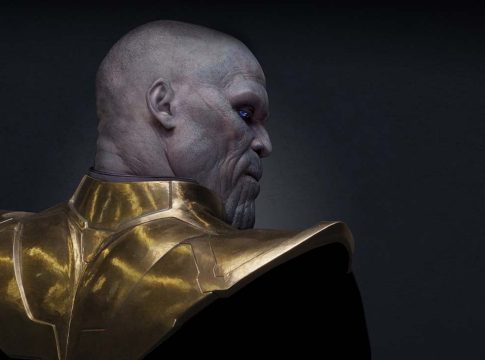Disney and Universal Take on AI: A Legal Battle with Midjourney
In a significant legal move that underscores rising tensions between entertainment giants and AI technology companies, Disney and Universal have initiated a lawsuit against Midjourney, a generative AI firm known for its image and video creation tools. The complaint, filed in Los Angeles, accuses Midjourney of enabling rampant copyright infringement by allowing users to generate images of iconic characters with just a simple text prompt.
The Heart of the Complaint
The lawsuit describes Midjourney as a “bottomless pit of plagiarism,” highlighting how users can effortlessly conjure up images of characters like Darth Vader or Shrek in various whimsical scenarios—often dubbed as “AI Slop.” This phenomenon is not just a quirky byproduct of creativity; it represents a fundamental challenge to intellectual property (IP) rights, particularly for studios that have invested years—and considerable resources—into building their brands.
Disney and Universal argue that Midjourney’s tools have been trained on copyrighted materials scraped from the internet without permission. According to the complaint, Midjourney’s leadership, including CEO David Holz, has openly acknowledged the extensive and indiscriminate data collection process. The firm allegedly used various online tools to harvest text, images, and other content as training data for its AI models, blurring the line between creative inspiration and copyright infringement.
Supporting Evidence
The complaint is not just rhetoric; it presents specific instances of AI-generated images mimicking beloved characters from Disney’s and Universal’s franchises. Evidence includes comparisons of Midjourney’s outputs with originals such as Yoda, Wall-E, and others. Each generated image serves as a tangible example of how these tools can quickly replicate copyrighted works, raising questions about fair use and creator rights in the digital age.
Broader Implications for AI and IP Rights
As the legal landscape evolves, industry experts are watching closely. The ramifications of this lawsuit extend beyond the immediate parties involved. It signals a broader concern regarding the ethical use of AI in creative industries. Disney’s chief legal officer, Horacio Gutierrez, emphasized that while AI has great potential for innovation and creativity, it must not come at the expense of existing IP laws.
Gutierrez articulated a need for responsible AI use, noting that "piracy is piracy," regardless of whether the infringer operates a human or an AI. The statement reflects a growing unease within the creative community about how AI tools might be misused, potentially undermining the interests that are foundational to creativity and artistic expression.
Looking Ahead
This lawsuit is just one chapter in the ongoing saga of "Big Entertainment vs. Big Tech," and its outcome could reshape the landscape for generative AI and copyright laws. As AI technologies advance, the balance between innovation and protection for creative works will become increasingly important. Companies leveraging AI must navigate this complex terrain carefully, as the stakes are higher now than ever.
In a world where creativity meets advanced algorithms, both sides of the argument have valid points, but the need for a framework that respects creators’ rights while fostering innovation is urgent. As this case unfolds, it may set significant legal precedents impacting the future of AI-generated content and intellectual property rights alike.

Writes about personal finance, side hustles, gadgets, and tech innovation.
Bio: Priya specializes in making complex financial and tech topics easy to digest, with experience in fintech and consumer reviews.

